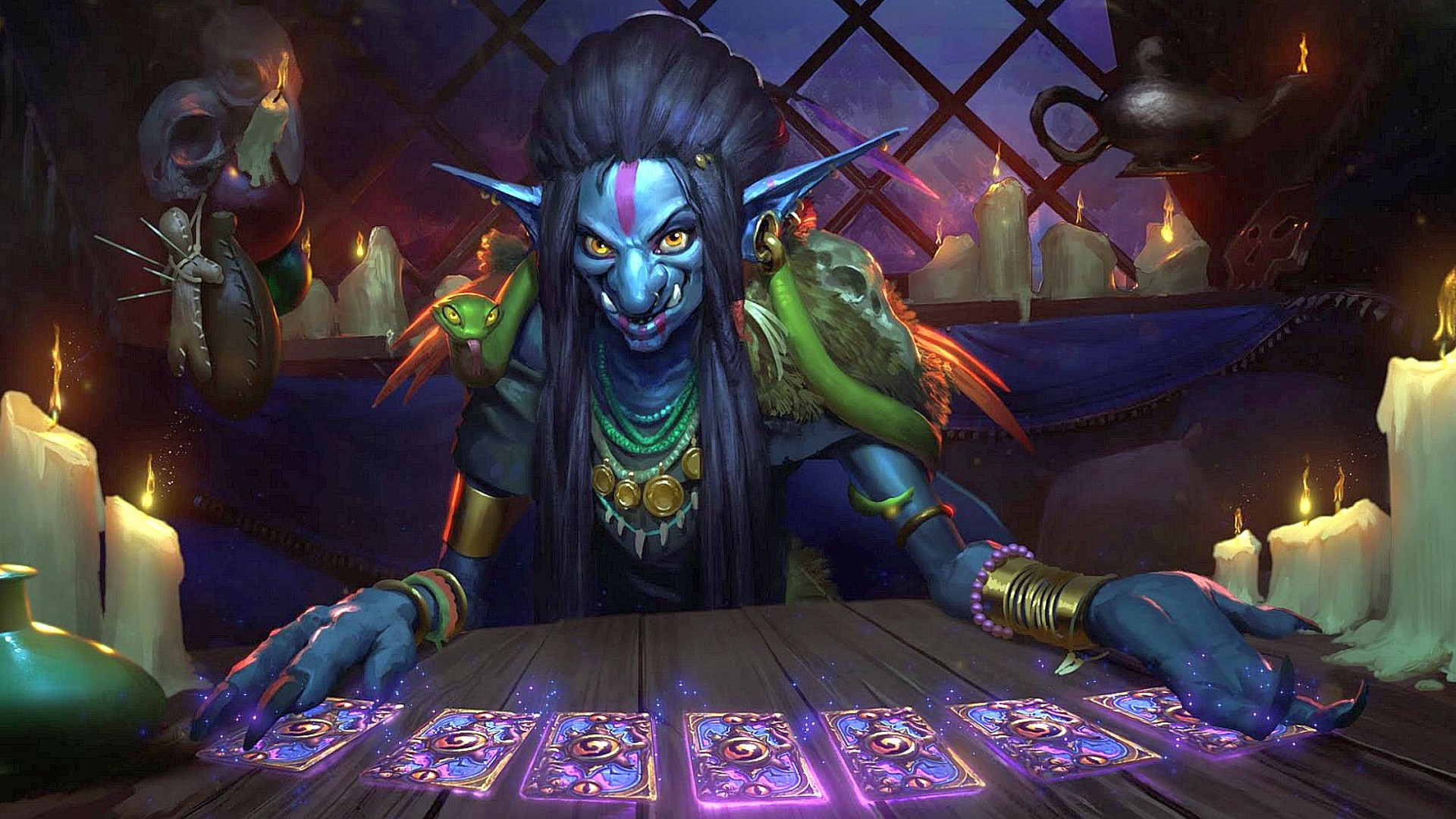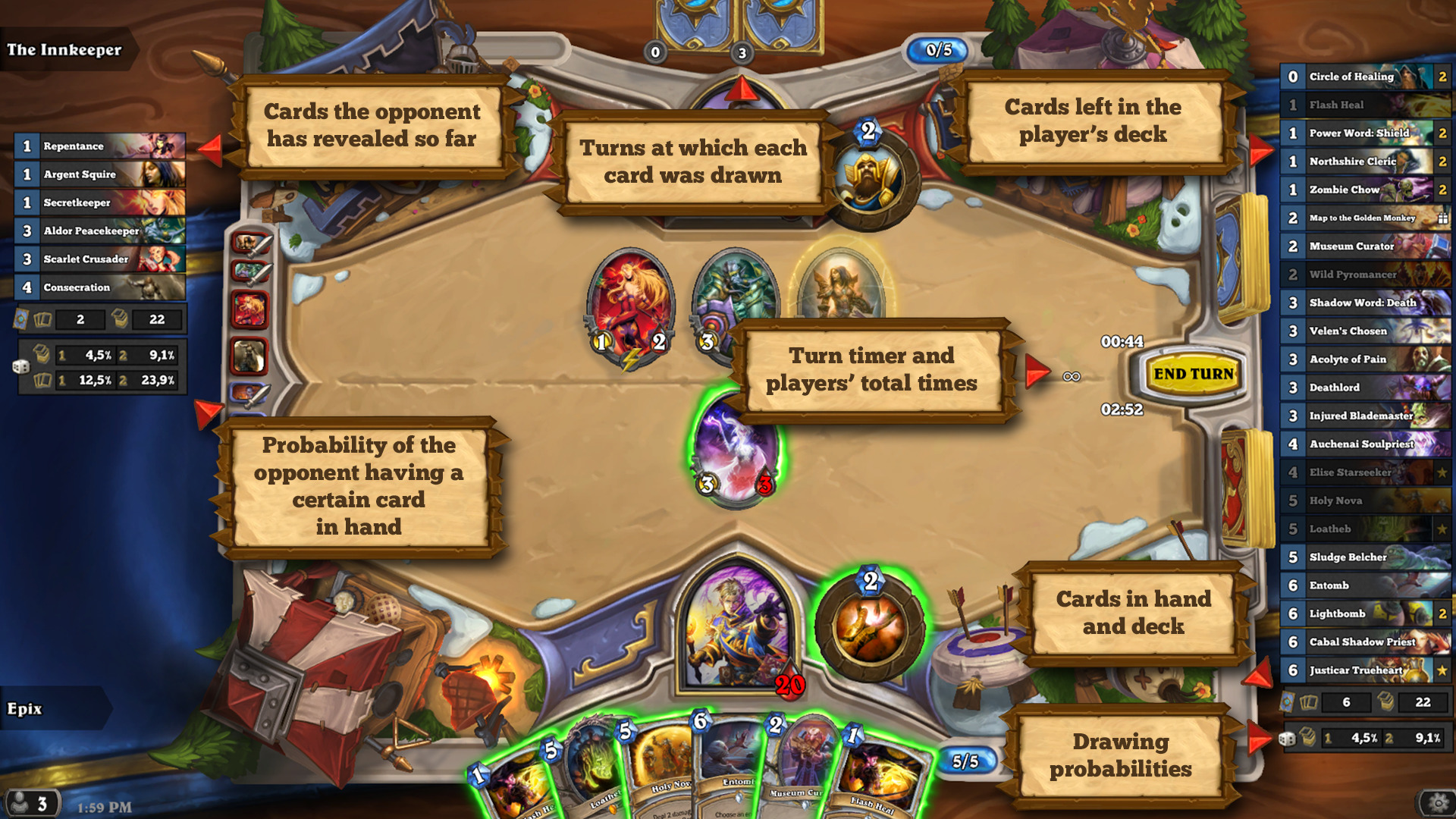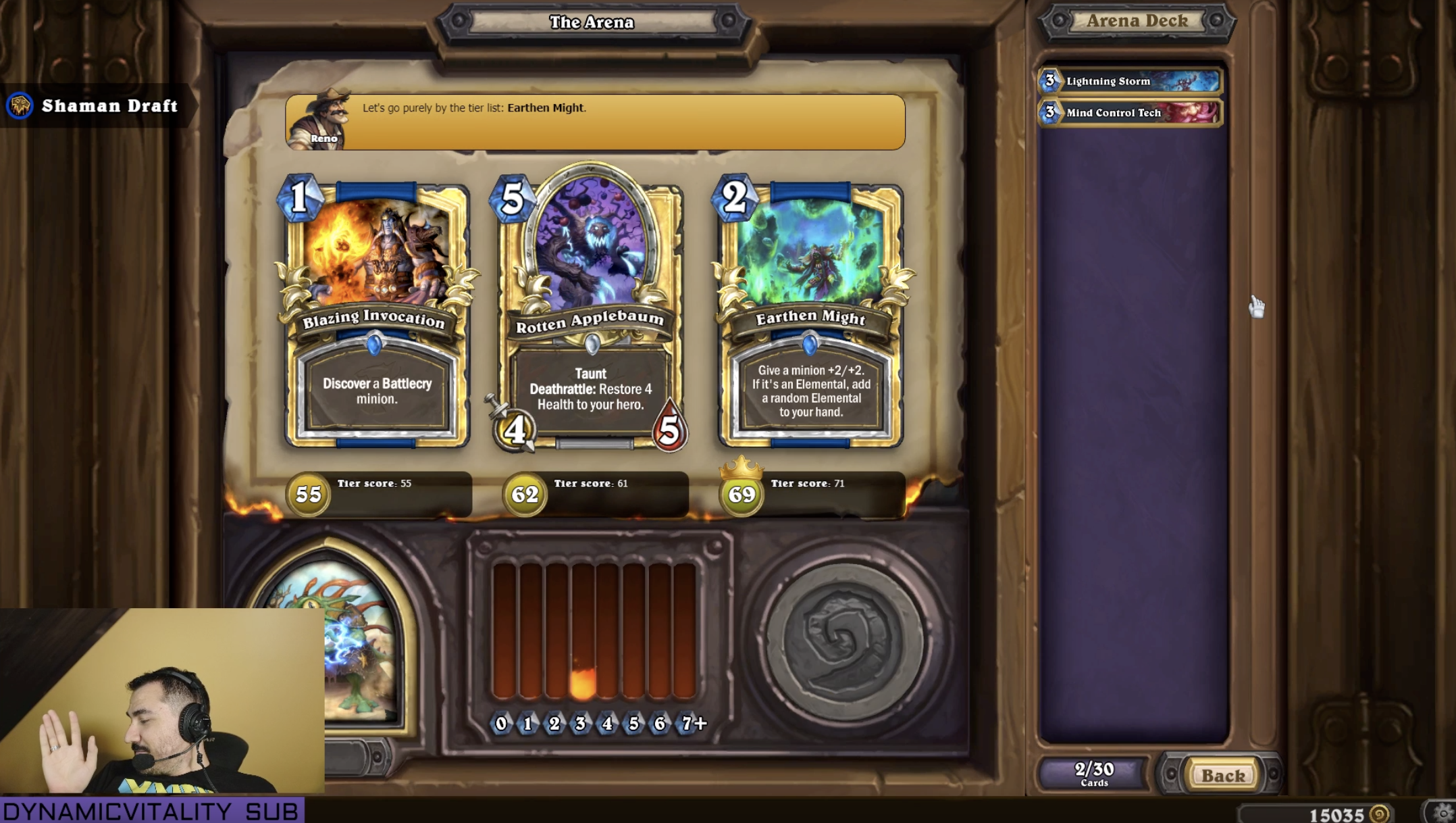How data analysis is helping Hearthstone players crush their opponents
From deck trackers to tier lists, if you aren’t using third party to software to help your win percentage, you’re playing at a disadvantage.

Most Hearthstone players have, at one time or another, employed outside assistance in an attempt to boost their winrate. Scouring the internet for the hottest new decks created by pro players—otherwise known as ‘netdecking’—is the most obvious method, but hiring a coach is an expensive but potentially more beneficial option. And at the other end of the reliability scale, there’s always a desperate prayer to RNGesus that you don’t mill your most important card. Your mileage will vary, but what’s beyond doubt is that external tools are now a core part of the game.
Where once netdecking was frowned on by elitists who felt that brewing your own decks was the real way to have fun in a CCG, these days resource sites offer a larger library of proven decks than anyone could ever hope to test. But there are also a number of data-driven ways to enhance your chances. Unofficial in-game overlays provide access to more information than ever before. Even Blizzard is getting in on the action, with their regular Off-Meta Reports tapping into the developer’s in-house data to identify decks which are out-performing the field.
Alex Zeier is the creator of Hearthstone Deck Tracker, widely considered the go-to tool for players looking to boost their percentages on ladder. "The Deck Tracker started out as a tool to count the number of cards in your hand," he tells me. "Eventually, on Reddit there was another post that talked about how you can read information from the game's log files. So I switched to using that for the hand tracking and then realised I could do all kinds of other stuff: like tracking the cards you have left in your deck and the stuff your opponent has played."

Nowadays, Hearthstone Deck Tracker boasts an impressively lengthy list of features. Its overlay is considered such an advantage that many pro tournaments don't allow players to have it installed on their laptops. Nonetheless, Hearthstone Deck Tracker has always adhered to Blizzard's (admittedly vague) guidance regarding third-party software extensions. Specifically, a tweet from from former game director Ben Brode which said that "any app that duplicates what you can do with a pencil and paper already is fine."
"We're actually very mindful of that paper and pencil tweet," says Andrew Wilson, CEO of HearthSim, the company that now develops Hearthstone Deck Tracker. "There are lot of features that we have been asked frequently to build that we have intentionally declined building because it would make it [too much] easier… For example, we have been asked many, many times to predict your opponent's deck. Once they've played a couple of cards, you can probably guess what deck they're playing and show the player a lot more information. And that kind of feature is something you couldn't do with paper and pencil."
HSReplay uses data to generate class rankings, tier lists of the most popular meta decks and mulligan win percentages.
Hearthsim's other main product is HSReplay, a site that pulls data from participating Hearthstone Deck Tracker users to share replays of their games online. Perhaps more interestingly, HSReplay also uses this data to generate things like class rankings, tier lists of the popular meta decks and mulligan win percentages.
Andrew says the ultimate aim of the project is to make super granular information about the most common decks in a given meta as accessible as possible. "We hope that players develop a habit of thinking 'Oh, if I'm going to sit down for a play session and I want to understand the meta, then I'll hop on HSReplay and find the right deck for me to play right now'," he says. "And that depends on what your region is and what your rank is and what time of day it is."
Keep up to date with the most important stories and the best deals, as picked by the PC Gamer team.
As it stands right now, a good amount of HSReplay's functionality is available for free—signing in with your Blizzard account is the only barrier to entry. The more in-depth tools, however, which enable filtering by things like region and rank, are only available to members who pay for the premium package.
HSReplay isn't the only website diving deep into deck data. Vicious Syndicate's Data Reaper project is a major competitor, publishing comprehensive meta reports on a weekly basis. They use Hearthstone Deck Tracker to gather some of their numbers too, but are mainly reliant on the more lightweight application Track-o-bot. Data Reaper may not boast the flashy interface of HSReplay, but it does do a fantastic job of charting the progress of decks over the week leading up to each report, as well as contextualising the rankings with commentary from pro players.
This level of analysis isn't limited to Hearthstone's constructed mode, either—plenty of tools have also been designed specifically for Arena. Of those, HearthArena is the most well known, providing a regularly updated Arena tier list with a numerical score assigned to every card you could possibly draft.
"There are tons of cards that never see play in constructed, but are decent in arena," its creator, who preferred to stay anonymous, told me. "We have a group of leaderboard-level arena players that evaluate cards. We reference a huge pool of existing cards and specific stats aggregated by class, meta and player skill level. This way we are able to come up with accurate scores for new cards and re-evaluate existing ones if needed."

HearthArena also has its own in-game overlay, providing players with real-time pick suggestions as they progress through a draft. "Using probabilities, math and thousands of lines of code, it analyses various aspects of what you already have selected and takes into account what you can expect for the rest of the draft," the creator says. "It then translates this into wording that is easy to understand and explains the reasoning behind its suggestion"
It's impossible to list all of the resources out there, but here are a few of the other best-known ones: The Tempo Storm meta snapshot provides weekly rankings of decks curated by elite Legend players. The @hsprodecks Twitter feed delivers a stream of the hottest new builds directly into your timeline. And websites like Hearthpwn and HearthstoneTopDecks continue to do what they've always done, providing a library of the meta's defining decks, often with accompanying guides.
Deck Tracker will help you make fewer mistakes in the short-term, but long-term may keep you from focusing and make you improve more slowly
—Xixo
The core question remains: will these tools make you win more? When I asked pro player Sebastian 'Xixo' Bentert what he thought of VS Data Reaper and HSReplay, he said "I think they are good ways to analyse the current meta, as well as power levels of cards. They challenge your ability to interpret stats and reward you with better preparation." On deck trackers, he was a little less enthusiastic. "Deck Tracker will help you make fewer mistakes in the short-term," he says, "but in the long-term may keep you from focusing and make you improve more slowly."
He makes a good point about Deck Tracker. As someone who's never found the pen-and-paper distinction particularly convincing, I do baulk a little at the sheer power of this thing. I've always found it especially crazy that Deck Tracker watches your opponent's hand all game and tells you exactly when they drew each card. This doesn't seem like a massive advantage at first, but say for example they're a Paladin with their turn eight coming round: if they've been holding one card since turn one, you know to expect them to have Tirion. It's not impossible to track this kind of thing with pen and paper, of course. But whether too many people would actually bother to pick up that skill—and actually use it on ladder—is another matter. I've definitely felt disadvantaged at times for not using Deck Tracker, so I do think it has a tangible impact on your play. I get a similar feeling when I don't use HearthArena, too.
The other tier lists and deck-finding resources I'd be more inclined to take or leave. Xixo's on the money here: these guides are for you to interpret and learn from, rather than follow religiously. It's good to get a sense of what's out there, and to practice a wide range of decks with different play styles, but if you really want to get good you need to develop your own intuitions. Data feeds into those judgments, and so it should, but remember: broken decks have often already stopped being so by the time they get picked up by the major tier lists. The players who can identify these meta-breakers before anyone else does are usually rewarded with the big ranks.
So, to sum up: these tools are undoubtedly really useful. The raw power of Hearthstone Deck Tracker, in particular, should boost anyone's game. To get the most out of them, however, remember to see them as ways to aid your own improvement as a player rather than as a crutch to lean on. At least that way, when the inevitable AI uprising comes, your ladder rank should remain relatively stable.
For those of you who like keeping your card collection optimal, check out our list of the 20 best legendaries to craft, as picked by the pros. We'll be updating it once The Boomsday Project launches and the meta settles.

